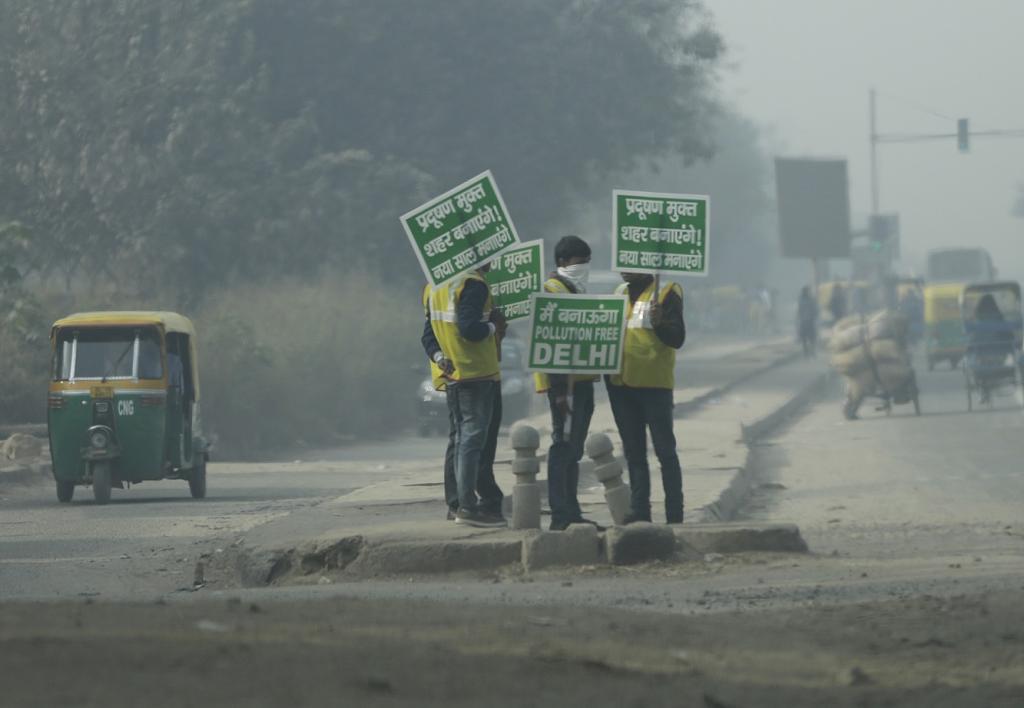Modernity and post-modernity have been major theoretical concepts that have captured our academic intellect but to what extent have we discovered them as lived realities or acquired the courage to challenge these constructs for a more culturally nuanced understanding of the world ?
Ananya Pathak |The New Leam
The process of western modernity with its stark emphasis on the quotients of rationality, neutrality, intellect detached from emotion and an overwhelming urge to dominate and exploit nature to meet the growing needs of civilization cannot be left unproblematised.
While it would be difficult to altogether deny the fact that through a series of turning points in History ranging from the Enlightenment, the Industrial revolution, the Renaissance to the French revolution Europe was able to initiate a process which challenged the erstwhile oppressive structures be they in religion, in social customs, in superstitions and prejudices or in the overall approach that man has towards worldly activity and engagement. The feudalistic and oppressive tendencies which had so far sustained an ambience of economic backwardness, centrality of religion over man’s life and a discomfort with worldly engagement were rapidly challenged and the new values of scientific temper, rationality and vitality in public life through the maximization of business and profit-making were encouraged.

The rational man was one who had broken free from the chains of an upbringing centred in the church, his perception about the world were to be based not on any obligatory factors but on sheer rational choice and deliberation. Such a man sharply demarcated the intellect from the emotive, the mind from the body- the Cartesian duality stood at the centre of his being. Given such a milieu it became natural for man to want to exploit nature to the best of his ability and to meet that end he developed tools and technology. Nature no longer was seen as the’ benevolent nurturer’ worthy of care and preservation but now began to be seen as an ‘obstacle’ or a mine of resources waiting to be ruthlessly exploited to further the project of development.
The meanings and connotations attached to this modernist version of development were linear and focussed only on economic development, growth of science and technology and the creation of markets for transactions and profit-making- there was no scope here of including alternative ideas of modernity or of development that were eco-friendly, culturally embedded or aesthetically endowed. The intellect and skills that man acquired and valued were all meant to serve this selfish purpose of the growing industrial civilization and in the name of scientific rationality the world began to be seen as a battlefield to be perpetually conquered and reigned over.

While the proponents of western modernity would argue that this was indeed a path breaking step in the unfolding of history but what we must also ask is whether we are today prepared to challenge the hegemonic conception of western modernity and look for alternatives to that discourse. Theoretically the discontents that arouse from modernity have given birth to a rich pool of thinking that has raised sharp questions on its agendas, shown its inhuman and anti-nature aspects and spoken of the possibility of the existence of several other versions of modernity that are culture sensitive but it is time we wondered whether we have ever done justice to this rich pool of ideas that challenge the dominant discourse of modernity? Post-modern thinkers like Adorno, Marcuse, Ulrich Beck or Zygmunt Bauman invited us to delve into the many contradictions within modernity and its project of development and rationality. While this notion of modernity promised economic growth, vitality in industry, cultivation of science and technology and the expansion and enhanced control of the west over the rest of the world (which was considered necessarily ‘anti-modern’, archaic, primitive and backward) on the one hand on the other hand it gave rise to several counter-productive by-products that spoke of an altogether negative dimension of modernity. While western modernity boasted itself on the values of democracy, justice and freedom in the colonies under its reign it practiced oppression, violence and inhuman treatment.
The likes of Gandhi and Frantz Fanon beautifully reflected on this paradox of the modern world and the many contradictions that this hegemonic notion of development and progress had so conveniently claimed to represent. Moreover, within the boundaries of Europe itself the discontents and paradoxes of this modernity could not be hidden for long as in the 20th century the two World Wars and the German Holocaust established how scientific rationality combined with authoritarianism could be a lethal combination for human suffering and large scale destruction.

Further the unprecedented expansion of the culture industry sought to create uniformity in the realm of culture too and run a road roller over all forms of uniqueness and difference. Thus the fact that not all was right with the western modernity became crystal clear as the discontents intensified over time.
It is interesting to note here that while the western notion of modernity came with the promise of challenging the erstwhile oppressive medieval culture and showed us how the growth of the modern, rational and scientific man could lead us to a world of freedom and economic prosperity on the other hand what we cannot deny is the fact that the new notions that modernity introduced in our civilization were themselves asserting a singular, unquestionable hegemonic centre of the world.
Thus what is being suggested here is that while western modernity questioned and challenged the medieval, church-dominated, feudal social structure it took another model of the society to be the source of all certainty, unquestionable supremacy and that itself became another source of oppression subsequently. Could different cultures strive towards different versions of ‘modernity’, could culturally sensitive and nuanced versions of ‘development’ be possible and was the western modern realistically the one that all others must be compelled to comply with? As the foundations of the western modernity began to shake and crumble these questions gained a new legitimacy.
Thus today we find ourselves in a hybrid world, where not one but many modernities find place and cultural relativism is scattered all around. However, when we look at the intricate unfolding of history we do realise the uncomfortable fact that although theoretically and philosophically we have often critiqued and challenged the singular notion of modernity propagated by the west and its hegemonic and undisputed acceptance by the larger part of the world, we have found it increasingly difficult to challenge it in our day to day living especially with the onset of the neo-liberal age.
Today what nation-states in the third world consider development or progress are in no manner culturally relative and follow blindly the western meanings of the term, our notions of ‘skill’, ‘capability’ or ‘intellect’ are defined in terms of their suitability to the industrial-technocratic society imagined by the west, the connotations we attach to youth culture or exposure to the outside world are all dependent on our propensity for the west, we define scholarship, merit, worth, growth, dreams and our relation to the ecosystem- exactly in the way that the west dictated us to or trained our minds to imagine. Is the post-modern cult of thought a mere fantasy fulfilment whose partial acceptance can be seen in architecture or art alone, have we implemented and resisted the western hegemony in any concrete manner in terms of economy, culture, society or our day to day engagements with the world around us?
It is important to ask ourselves these questions no matter how uncomforting they are because no critique will bear any fruit in the absence of grounded practice.
Today, as I find myself compelled to breathe the heavily polluted air in the country’s capital city and discovering time and again the blame games that politicians, civilians, civil-society activists, environmentalists and the corporate sector is playing amidst themselves without willing to initiate any significant change in our personal lives like reducing our cars, producing less waste, being less obsessed with the market, reducing our needs or rethinking our socio-cultural and educational practices in any significant ways. The sun has refused to shine over the city and a thick blanket of smog engulfs us all, the pollution levels are far beyond permissible limits and we are almost living in a gas chamber where our deaths are at best postponed if not altogether denied. Unless we allow our own lives to drastically alter, to rethink our bond with nature, to reduce our needs, to live eco-sustainably- we are quite manifestly falling prey to the western notion of modernity and development without even once being sensitive to our own culture specific definitions. Why have we lost all agencies and succumbed to the hegemon? Where is our own capacity to think, act and create?
The environmental crisis that we are now witnessing is only one reminder of our ideological slavery but are we prepared to redefine the modern even now?
The New Leam has no external source of funding. For retaining its uniqueness, its high quality, its distinctive philosophy we wish to reduce the degree of dependence on corporate funding. We believe that if individuals like you come forward and SUPPORT THIS ENDEAVOR can make the magazine self-reliant in a very innovative way.













